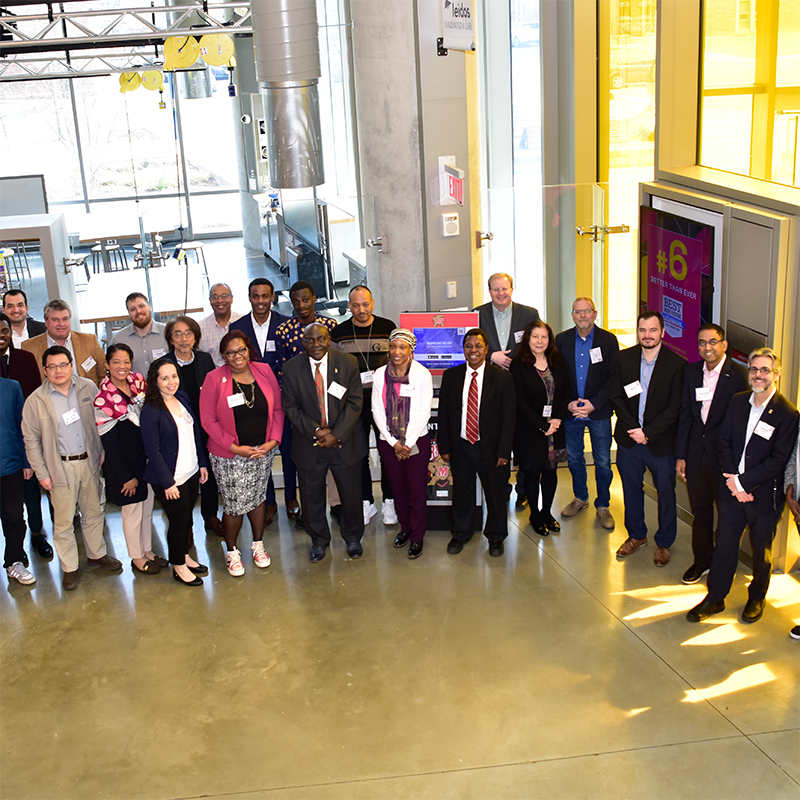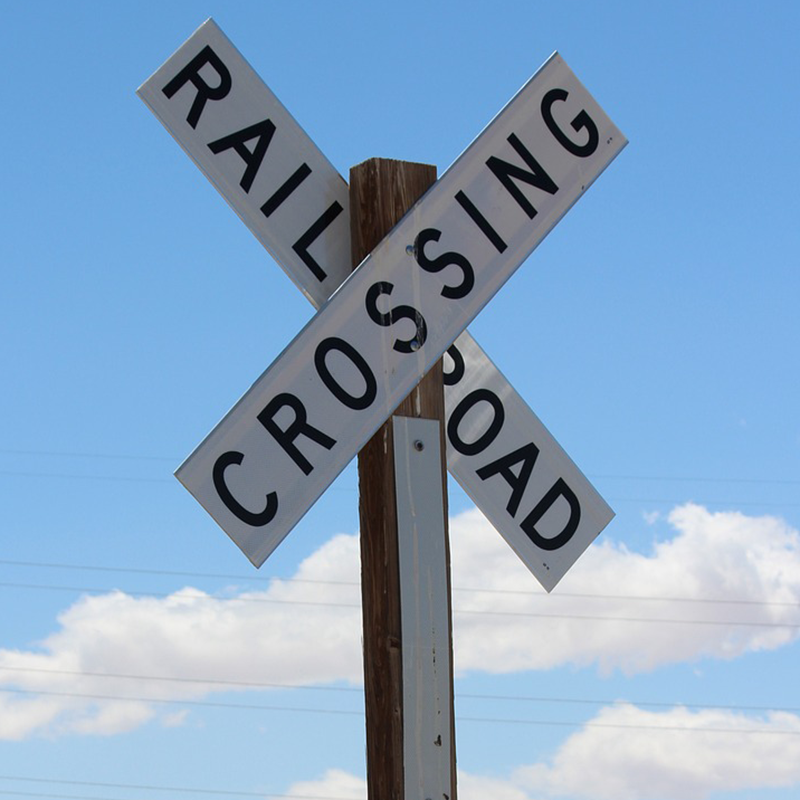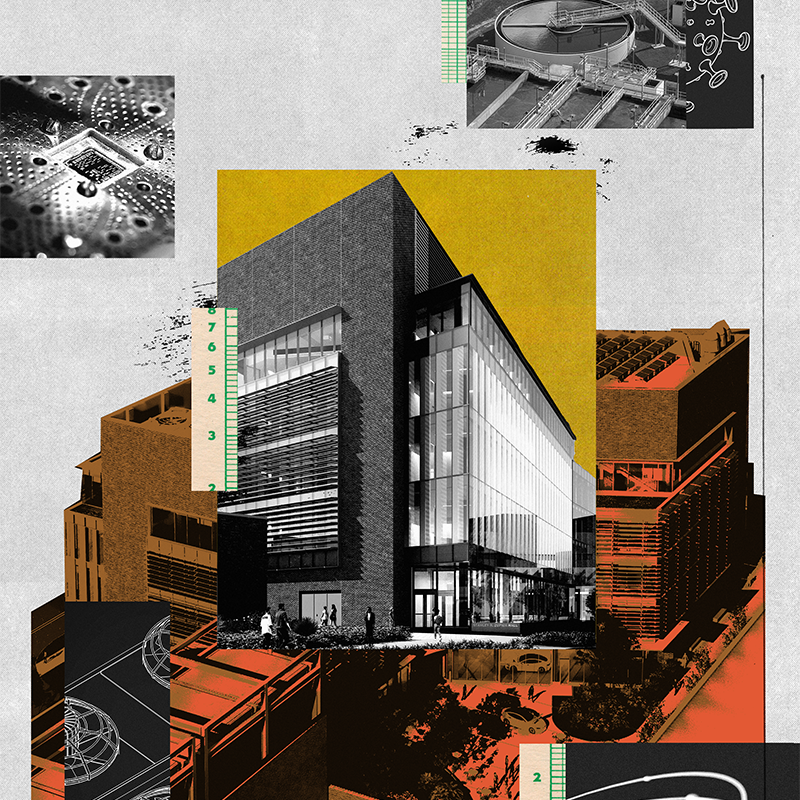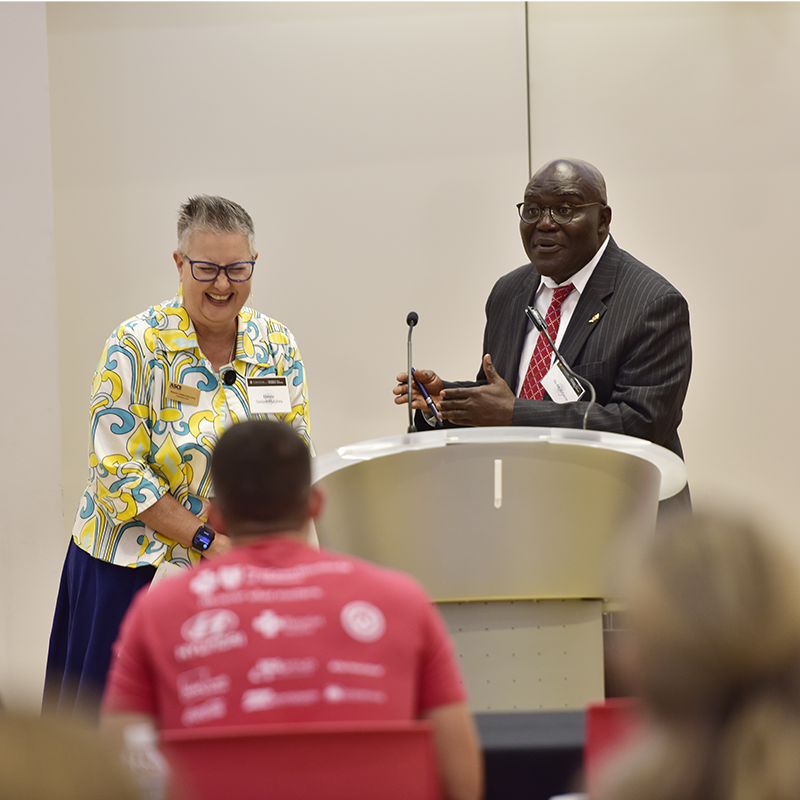UMD Hosts Roundtable on Bipartisan Infrastructure Law
October 12, 2023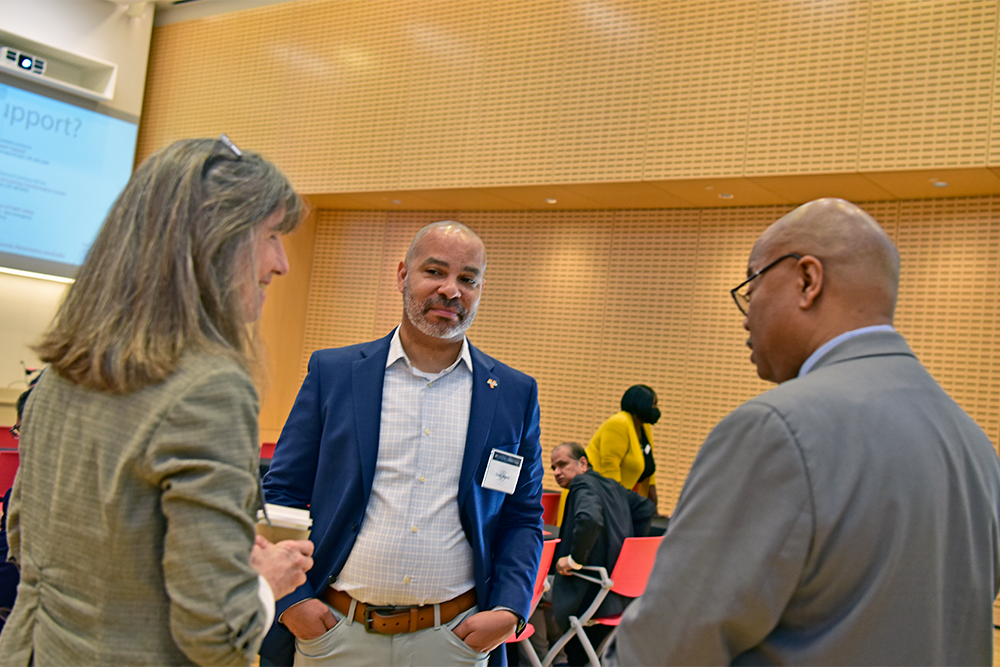
Civil and environmental engineering department heads joined federal and state officials and representatives of private industry at the University of Maryland (UMD) on October 3 as the UMD civil and environmental engineering department hosted a landmark roundtable on the Bipartisan Infrastructure Law (BIL) and its implications.
The goal: to chart a roadmap for educational institutions as they prepare students to meet the workforce needs created by the BIL, a historic 2021 package of legislation that earmarks approximately $108 billion to renovate and upgrade the U.S. transportation system and its associated infrastructure, as well as increase broadband access, support clean water initiatives, and renovate electric grids.
“An investment of this size brings with it a corresponding need for trained professionals, many of whom will come from civil and environmental engineering,” said UMD CEE chair Nii Attoh-Okine, who chaired the roundtable. “In many cases, infrastructure renewal means leveraging digital technologies. Engineering departments must be prepared.”
With its rich array of expertise and nationally known centers and labs, UMD is well positioned to help accelerate the effort, he said.
“UMD is a leading example of how educational institutions can contribute to achieving the objectives of the BIL,” Attoh-Okine said. “Implementation is most effective when it is grounded in data, and at UMD we have the research expertise and facilities needed to support data-driven approaches.”
The October 3 roundtable featured keynote addresses from Firas Ibrahim, Director of the U.S. Department of Transportation's (USDOT) Office of Research, Development, and Technology; Marsia Geldert-Murphey, President Elect, American Society of Civil Engineers; Todd Lang, Director of Transportation Planning, Baltimore Metropolitan Council; Rebecka Pritchard, Associate Partner, McKinsey and Company; and Tim Smith, former Administrator, MD State Highway Administration.
Moderated panel sessions were held on the infrastructure job market, preparing for the future infrastructure workplace, the implications for college engineering curricula, preparing the next generation of infrastructure researchers, and emerging technologies such as digitalization and AI.
UMD resources in the transportation field include the Build America Center (BAC), a UMD-led, nationally funded center for transportation excellence which assists in BIL implementation and provides technical assistance to states, localities, and other stakeholders. The BAC is housed at the CEE department and directed by Professor QIngbin Cui.
The department is also home to several additional labs and centers with a focus on transportation. The newly-established Digital Cyber Railway Engineering Operations Center (DCREOC) aims to advance the use of high-tech tools to secure the U.S. railway system against threats while also improving efficiency in safety.
In 2023, meanwhile, UMD was selected by the U.S. Department of Transportation to establish the Center for Multi-Modal Mobility in Urban, Rural, and Tribal Areas (CMMM), a Tier One University Transportation Center with a focus on improving the mobility of people and goods, particularly among disadvantaged populations. The department is also part of two other UTCs awarded funding in 2023: the Sustainable Mobility and Accessibility REgional Transportation Equity Center, led by Morgan State University, and the Research and Education in Promoting Safety Center, led by Howard University.
These newer organizations complement existing resources such as the Maryland Transportation Institute (MTI), a major interdisciplinary research hub that brings together experts from across the University of Maryland System; and the Center for Advanced Transportation Technology (CATT), whose affiliated CATT Lab hosts the world’s largest transportation database, the Regional Integrated Transportation Information System (RITIS).
